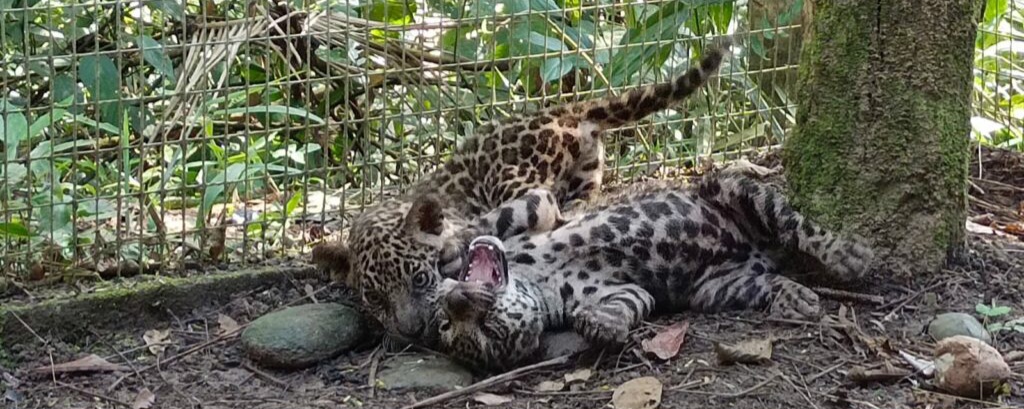The scorching dry season is in full swing and with rare rainy occasions, we’re lucky ducks thanks to the cooling river and waterfall.
Ready to read about spontaneous solutions, never-before-cared-for-animals, tragic tree tumbles, and loads of good pictures?
 Animals
Animals
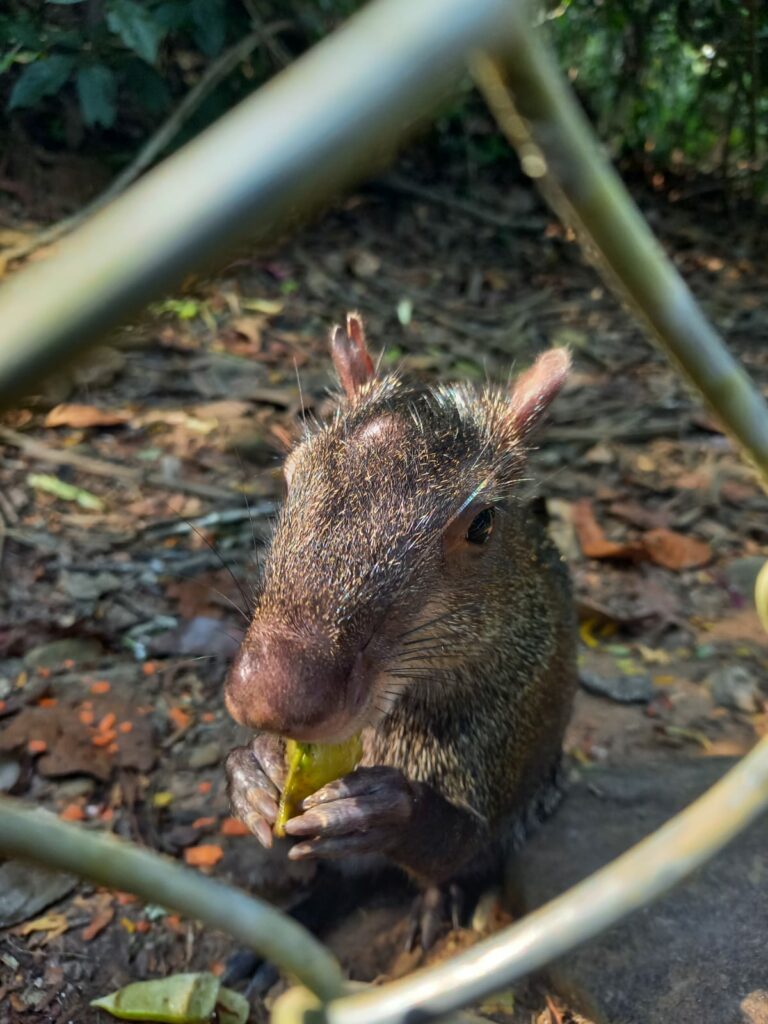
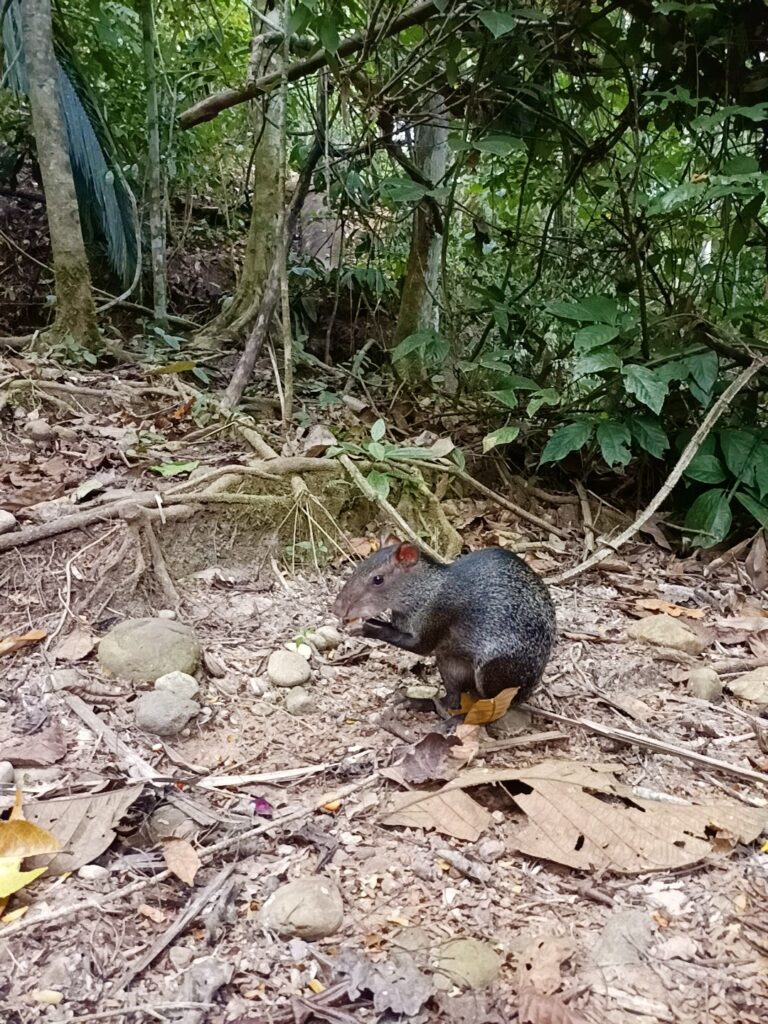
Kampari (young female agouti) successfully moved outside to the “Xena” enclosure. She immediately began to forage for wild food – a great sign. Her neighbours are our four resident agoutis, and once they get to know each other, we hope they’ll get along so Kampari can join their group.
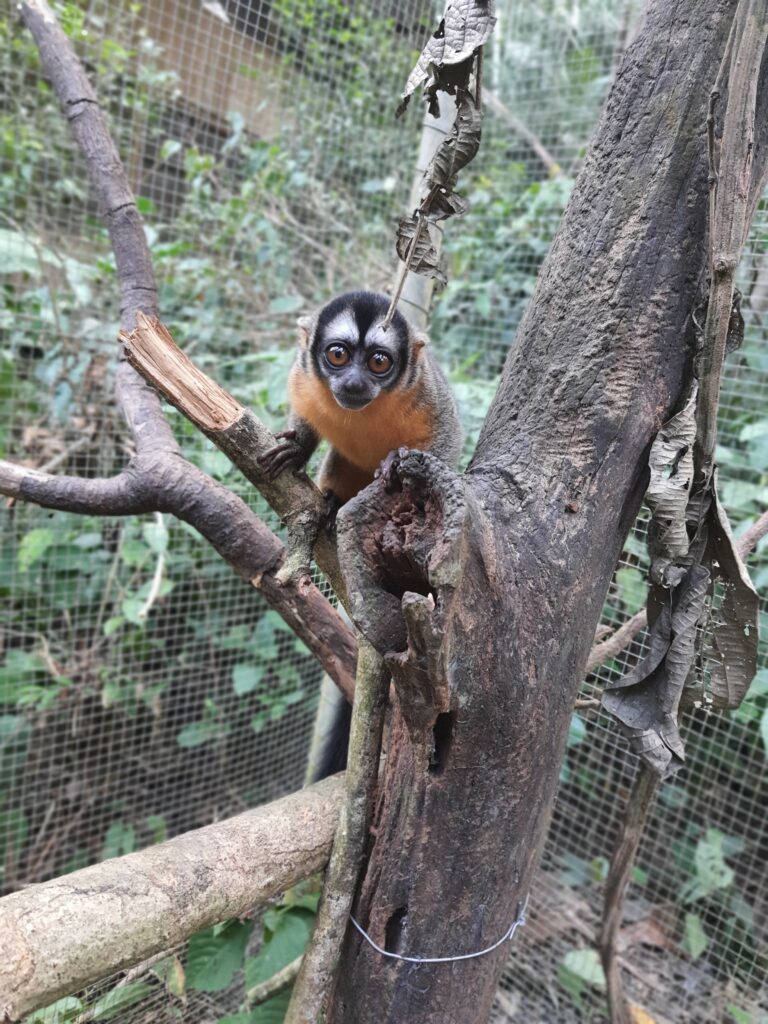
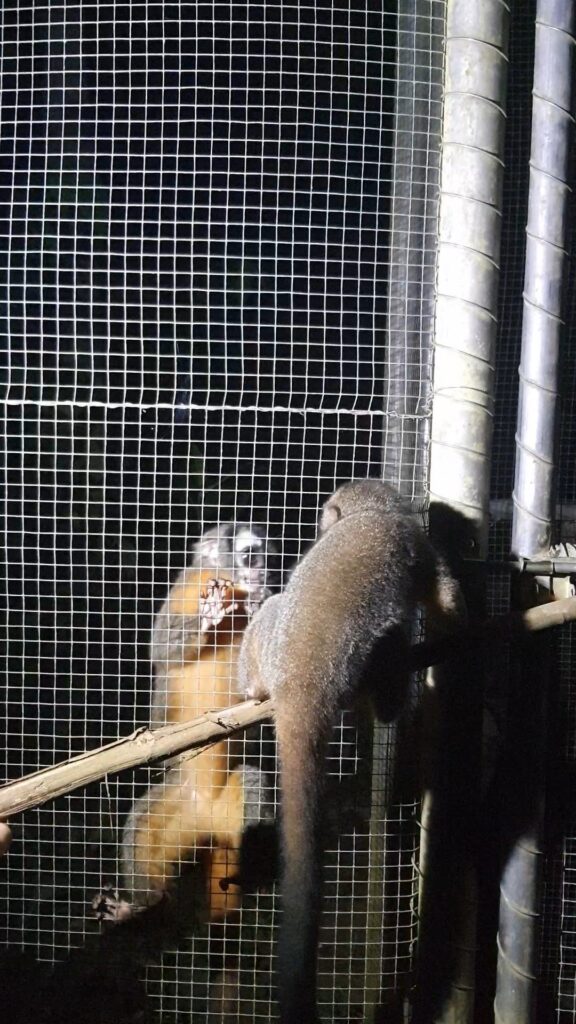
It was time for baby night monkey Yuna to take her next step towards independence; moving into the “Lucia” enclosure. Where she hunts, hops, hides, and gets the occasional hello through the mesh from Otis (adult male night monkey) and Ushari (young male night monkey).
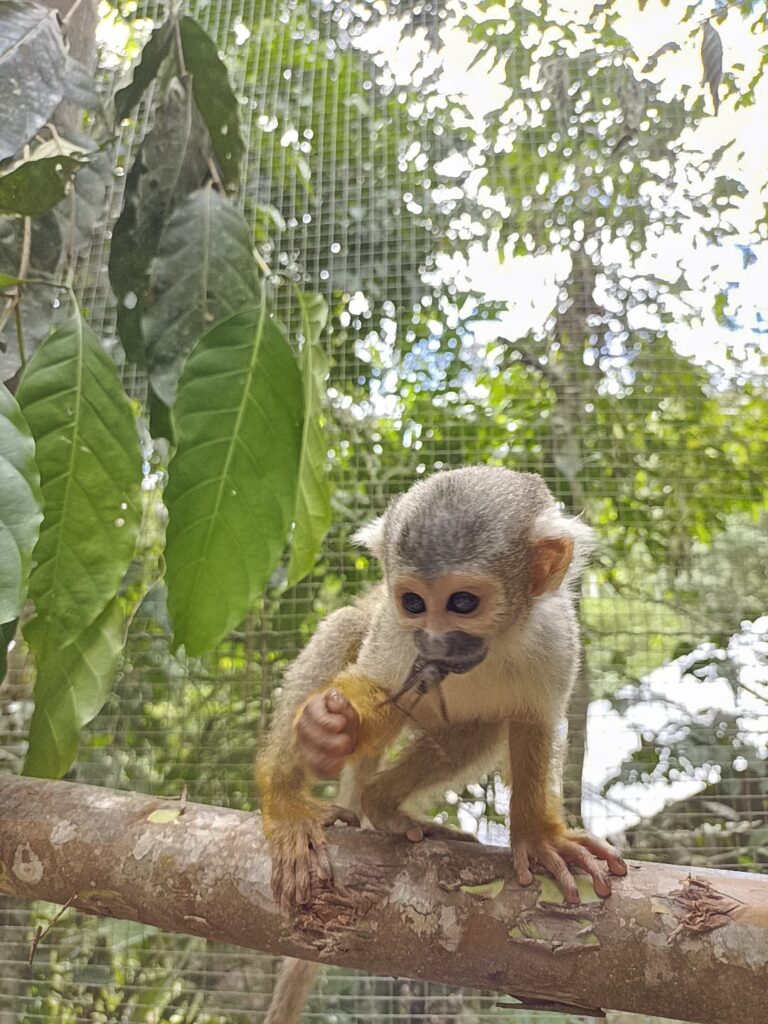
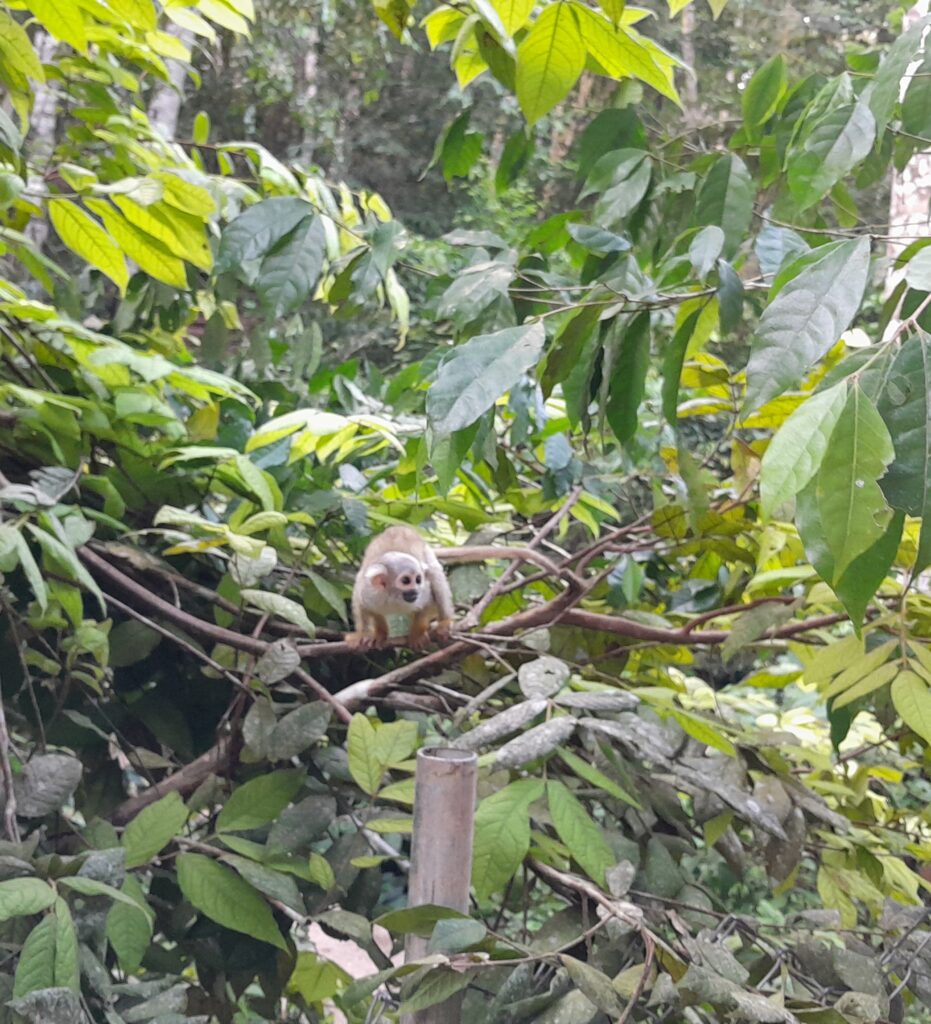
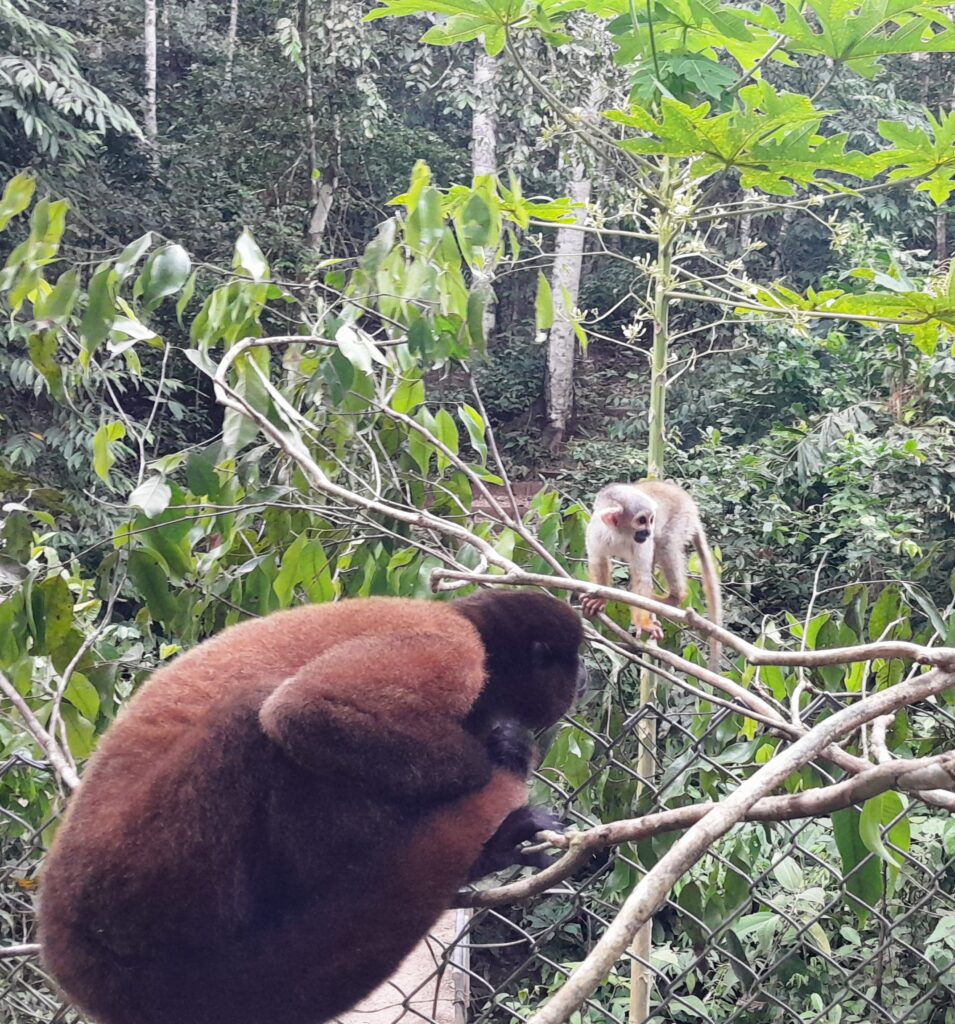
Mina (young female squirrel monkey) is also leaving her nest (the family house). Exploring the outside during the day, climbing high under the watchful eye of Morena (adult female woolly monkey). They do make a sweet duo.
Semi-captivity is complicated, it requires constant assessing and evaluation – but it’s worth it. We need to ensure all the animals are well, without engaging in unnecessary contact, rewiring their behaviour toward humans, and ultimately teaching them that they shouldn’t seek contact with us. Most of the time it works well, but we’ve spent months applying different tactics and testing new approaches without success, which meant Nando (adult male capuchin) has now been moved to the “Rimaq” enclosure with Lucio, Rimaq (adult male spider monkeys), Apollo, Biko (adult male capuchins) and Kres (adult female capuchin).
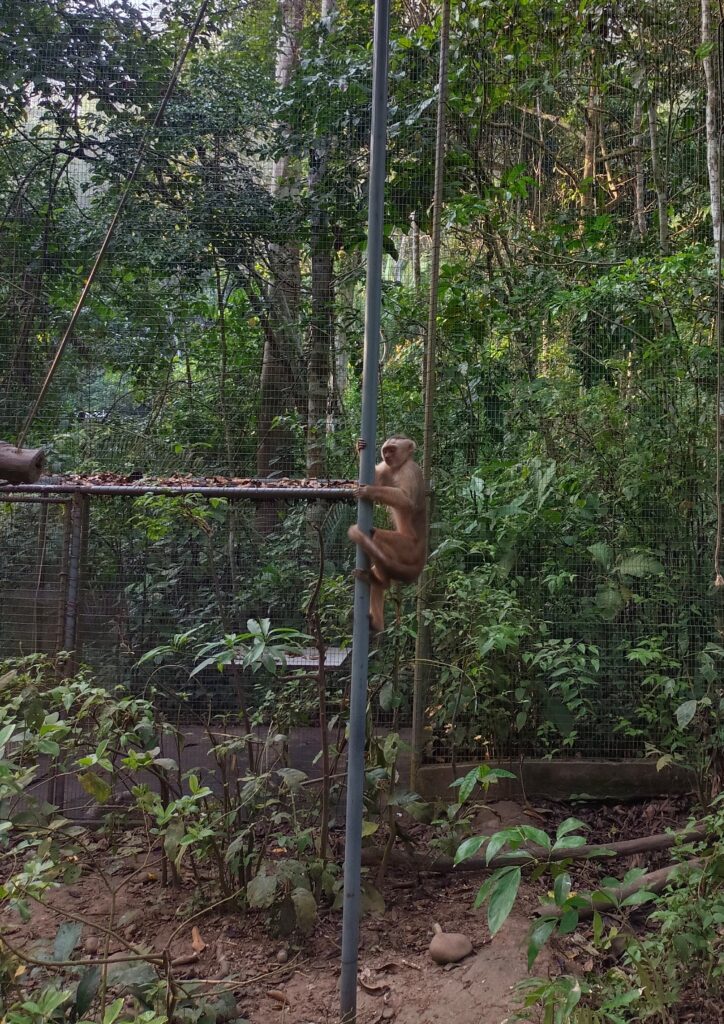
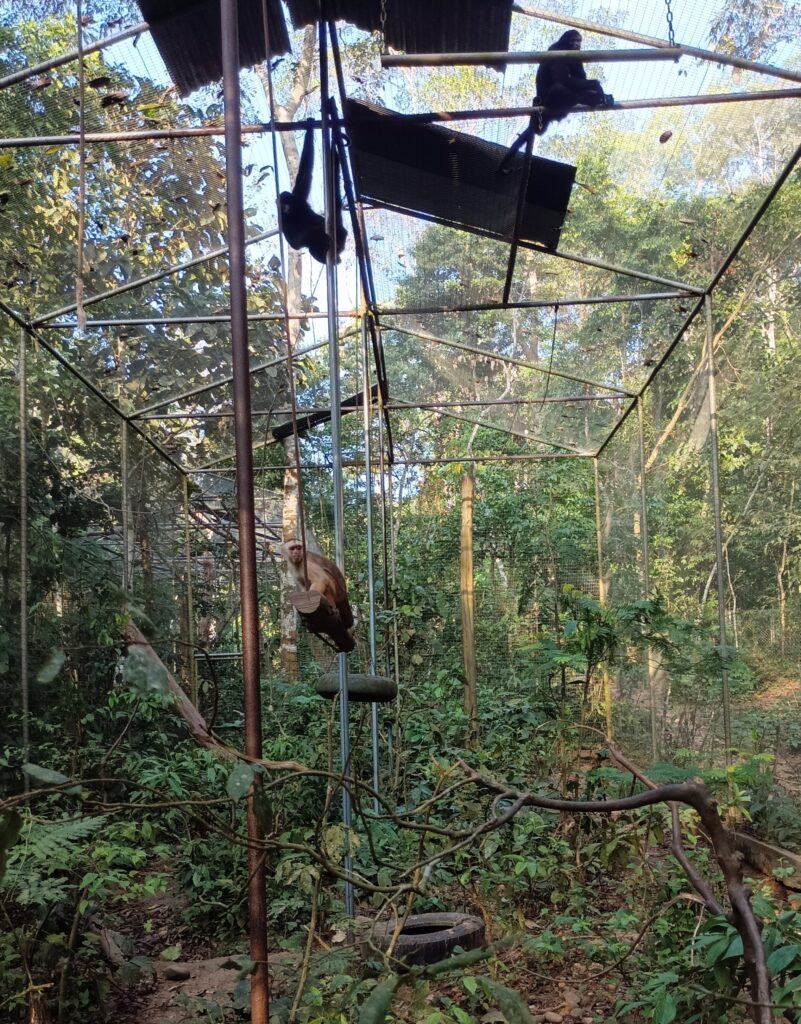
Nando was kept as a pet for the first years of his life, he’s spent four years in semi-captivity here, of which the last year was particularly testing for the entire team. Jumping on buckets (and people’s heads), stealing food, intimidating volunteers – occasionally resulting in a scratches or bites. Never anything too serious, but enough to take it seriously. It’s never an easy decision, but we know it was the right one for all involved.
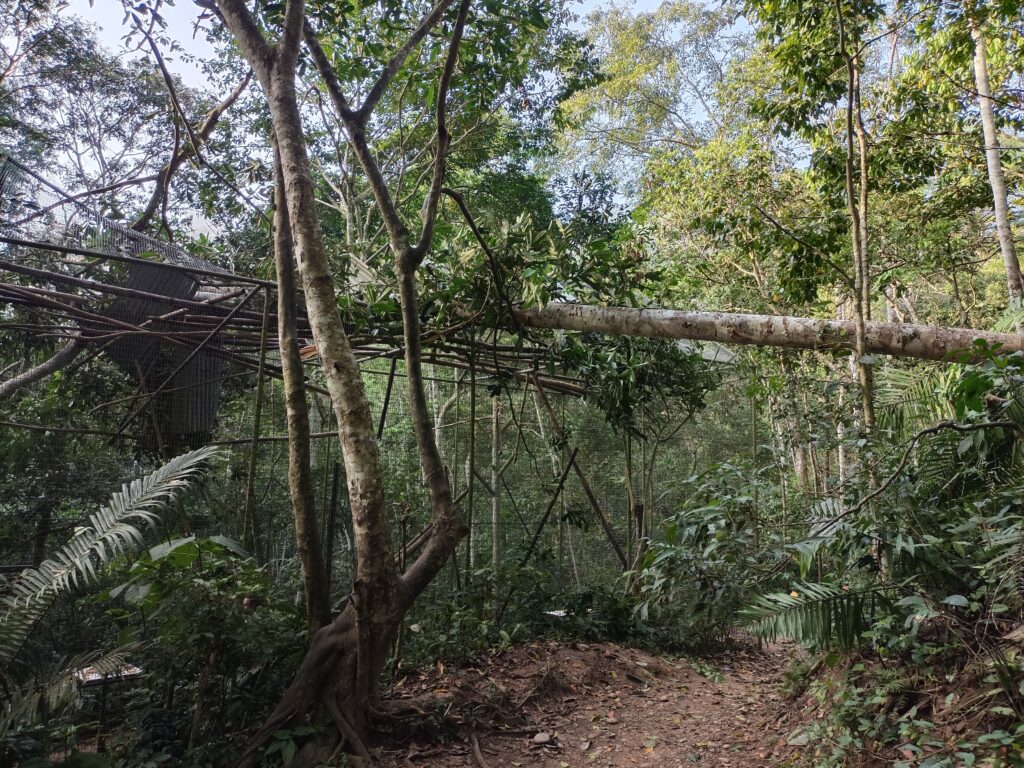
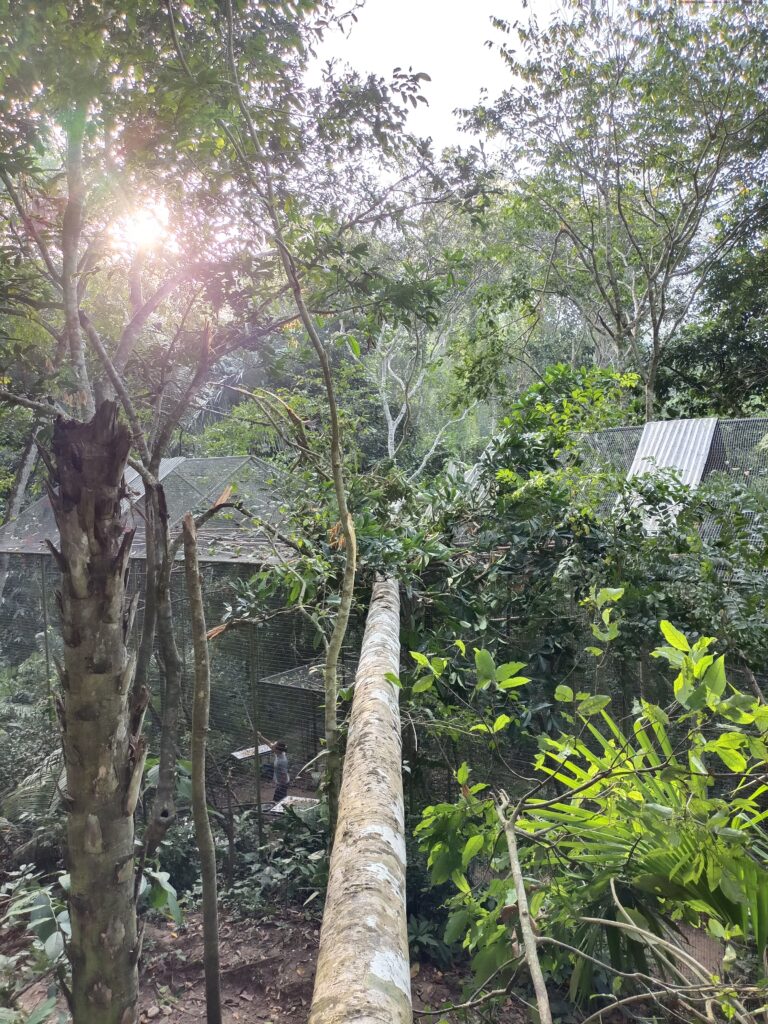
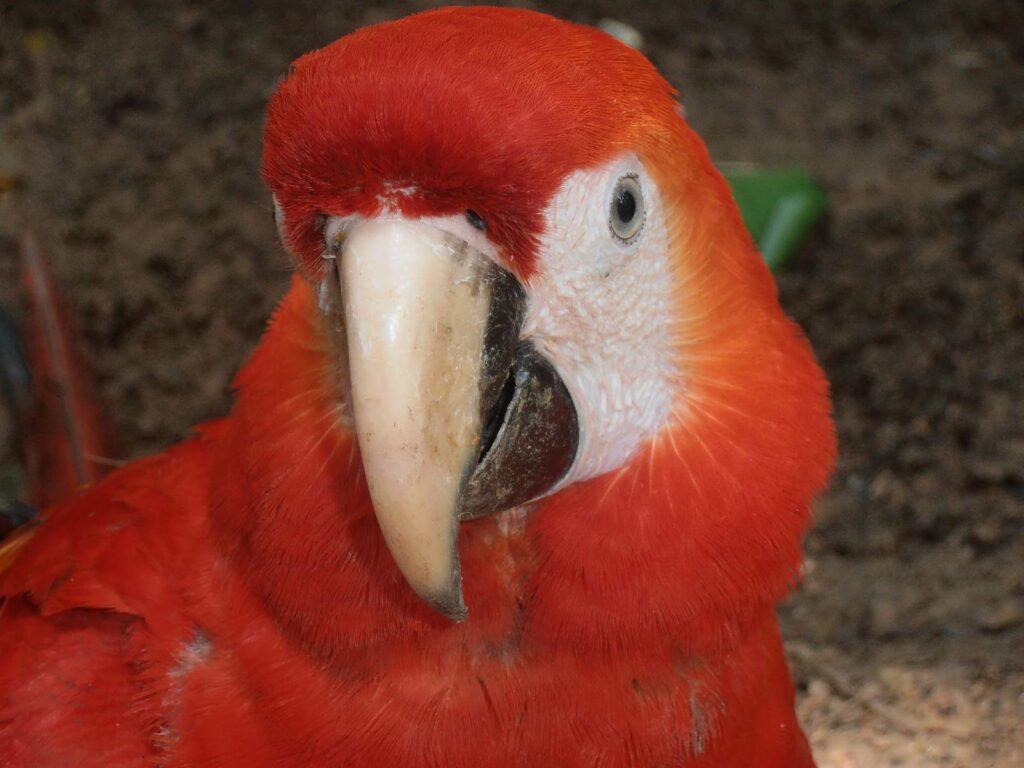
There’s never been a day that’s gone according to schedule at EV, that’s just the nature of what we do (and why we love it… most of the time). One morning we woke up to a giant hole, bent tubes and four birds missing from the “Pichu” aviary. A tree collapsed on it! Lucky us, Geyler was around to clean up and repair – which took two days. Arthur and Gabriel caught the three escaped Amazons and returned them to safety. Sadly, Mebi, the escaped Scarlet Macaw, passed on his way to the clinic. The monkeys found him on the floor, but as we couldn’t find any wounds, our guess is that his heart couldn’t handle it. A member of the EV family since 2014, Marlon knew Mebi as the macaw that always tried to munch on his (at the time) tiny feet.
 Susy Utzinger Orphan Animal Hospital
Susy Utzinger Orphan Animal Hospital
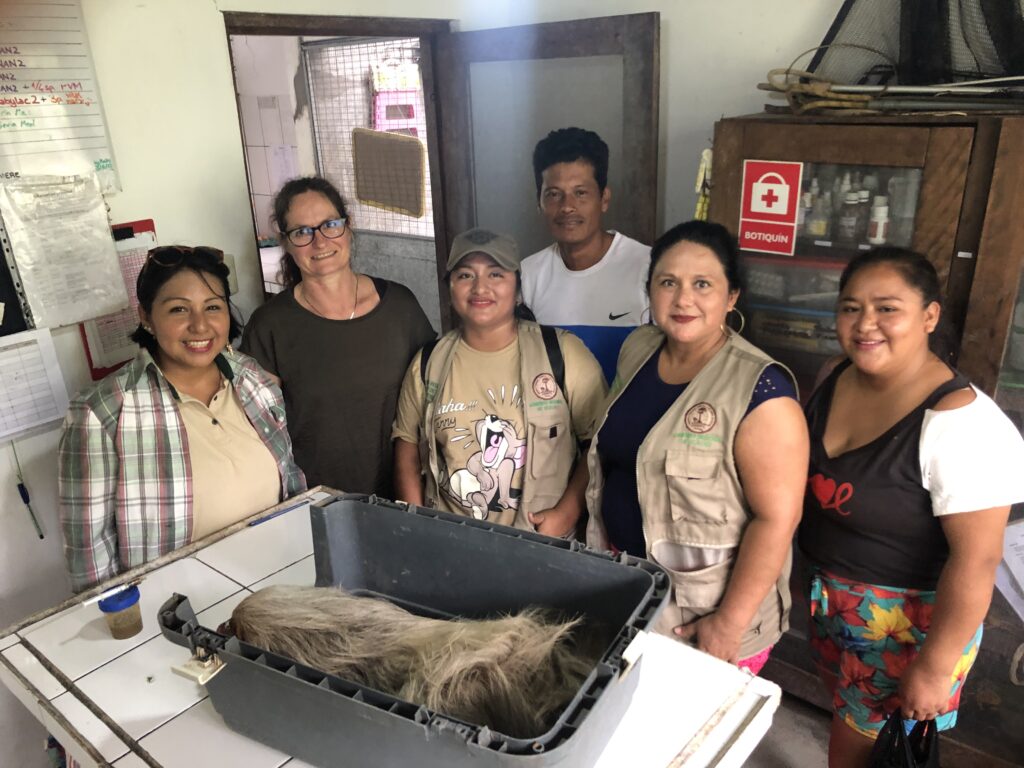
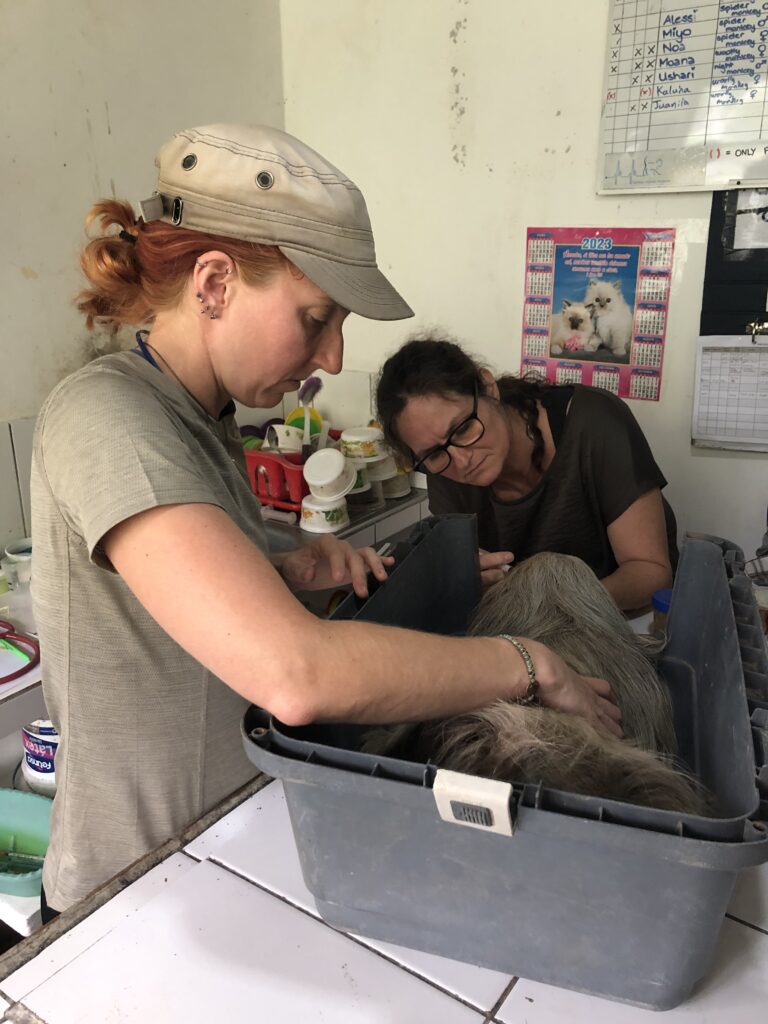
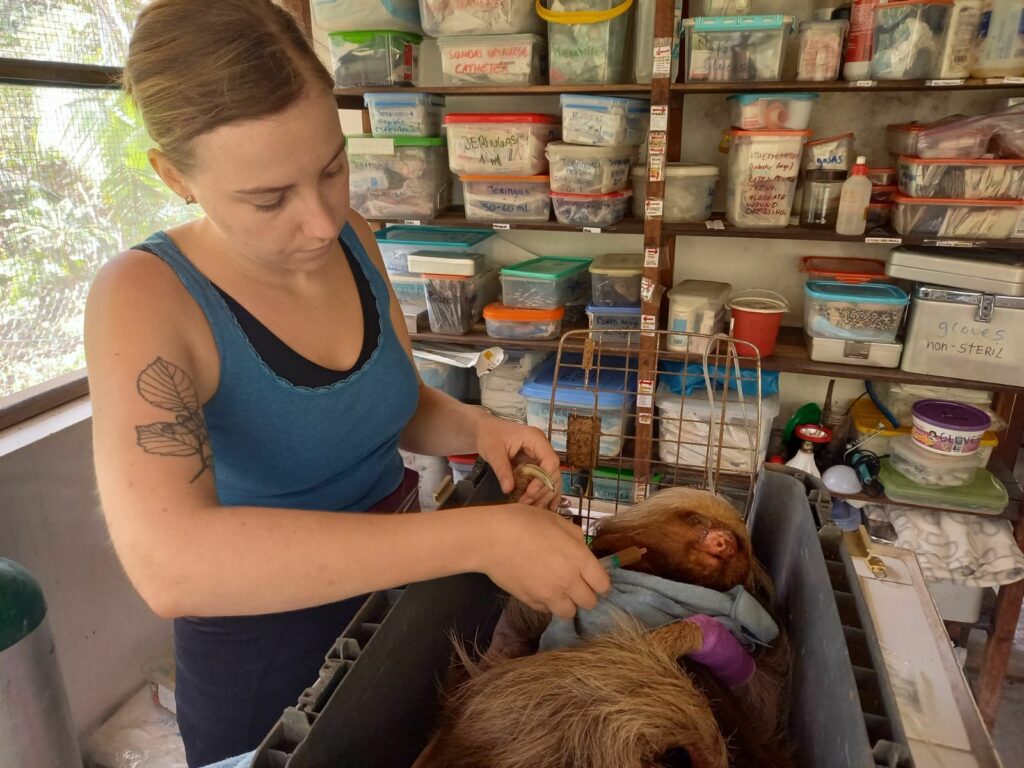
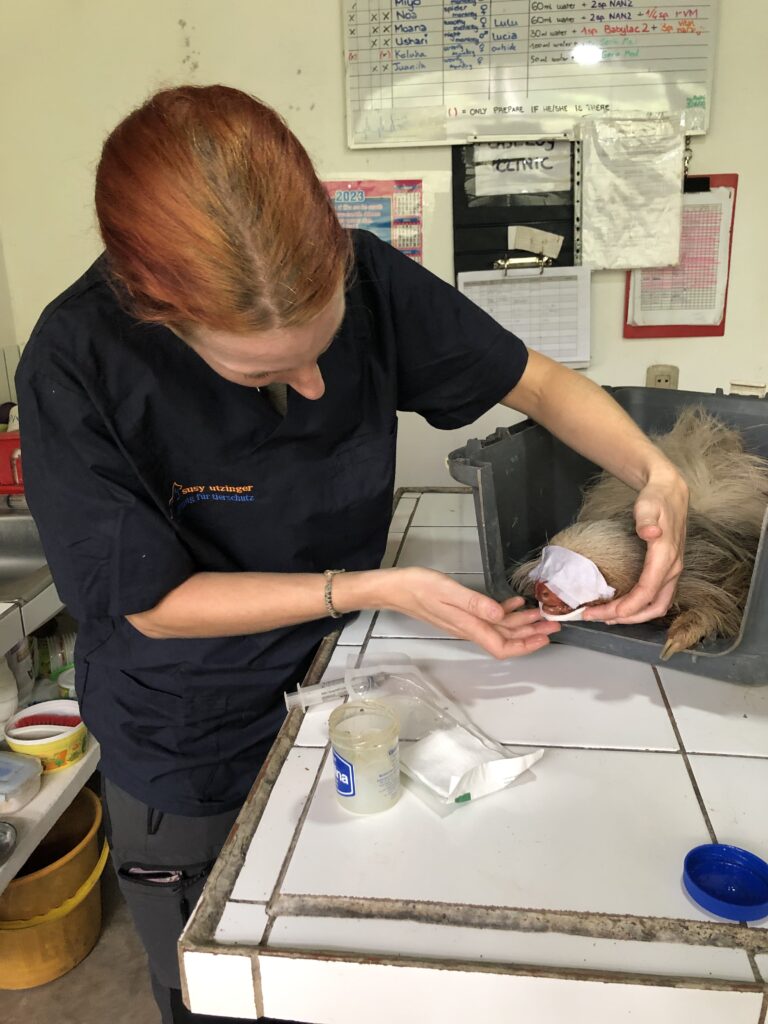
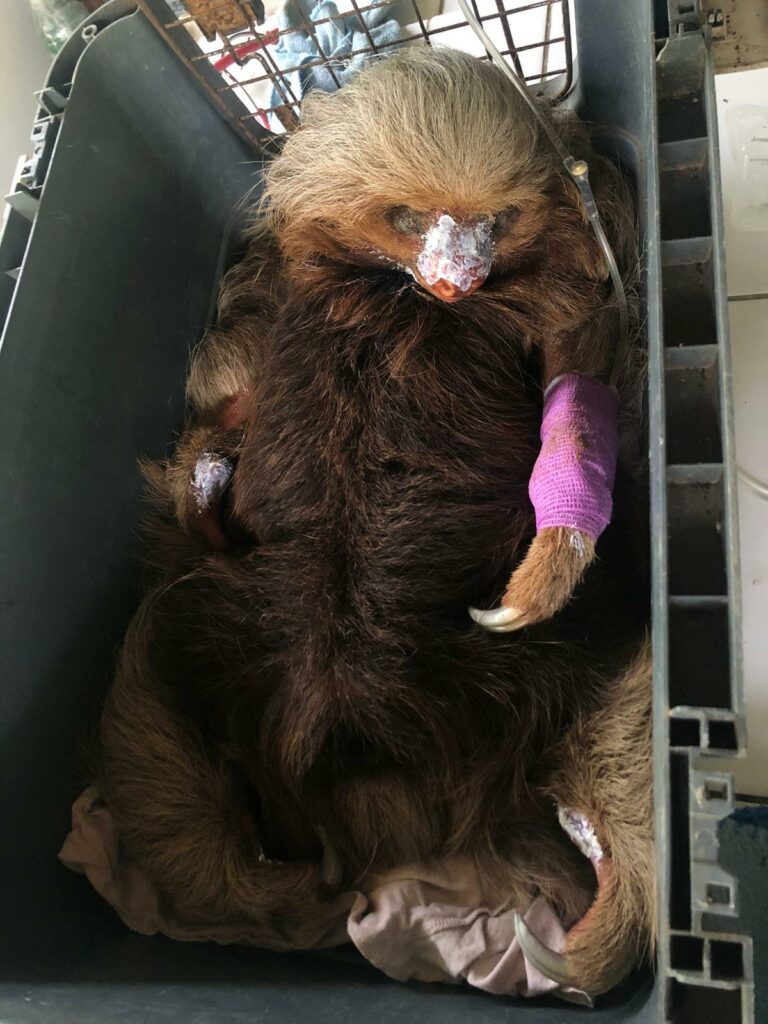
Representatives from the authorities took a 6-hour trip to EV to try and help a severely injured two-toed sloth. She was found on the ground, most likely fallen after touching electrical cables. She had severe burns on all extremities and the face. Our vet team, under the coordination of our new long-term veterinarian Sam, took her into intensive care immediately. Unfortunately, the burns were severe causing intense suffering. Her legs seemed to be paralyzed with no sensation, making a full recovery very hard. After several consultations with specialists, we decided it was time to let her go.
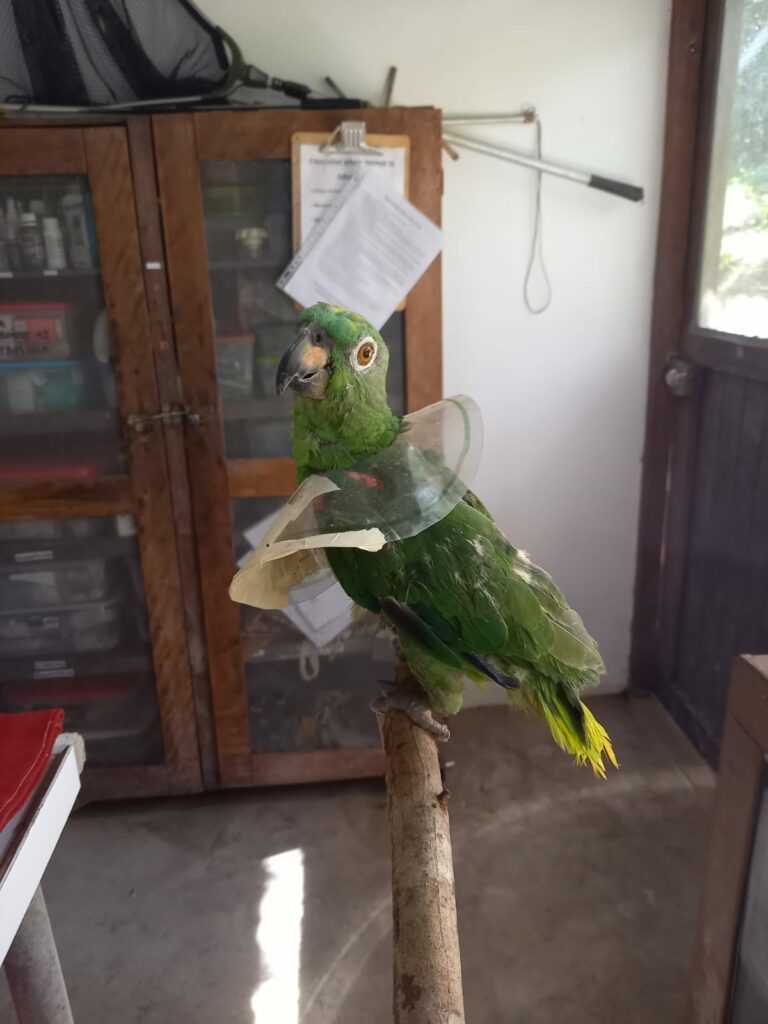
Zuna (yellow-crowned amazon) is still at the clinic. Her breast wound wasn’t healing, as she kept picking at it. To prevent her from harming herself, Douwe and Sam created a jungle-made collar. She didn’t like it at first, but she’s gotten used to it and the wound is looking really nice. Ingenious craftsmanship!
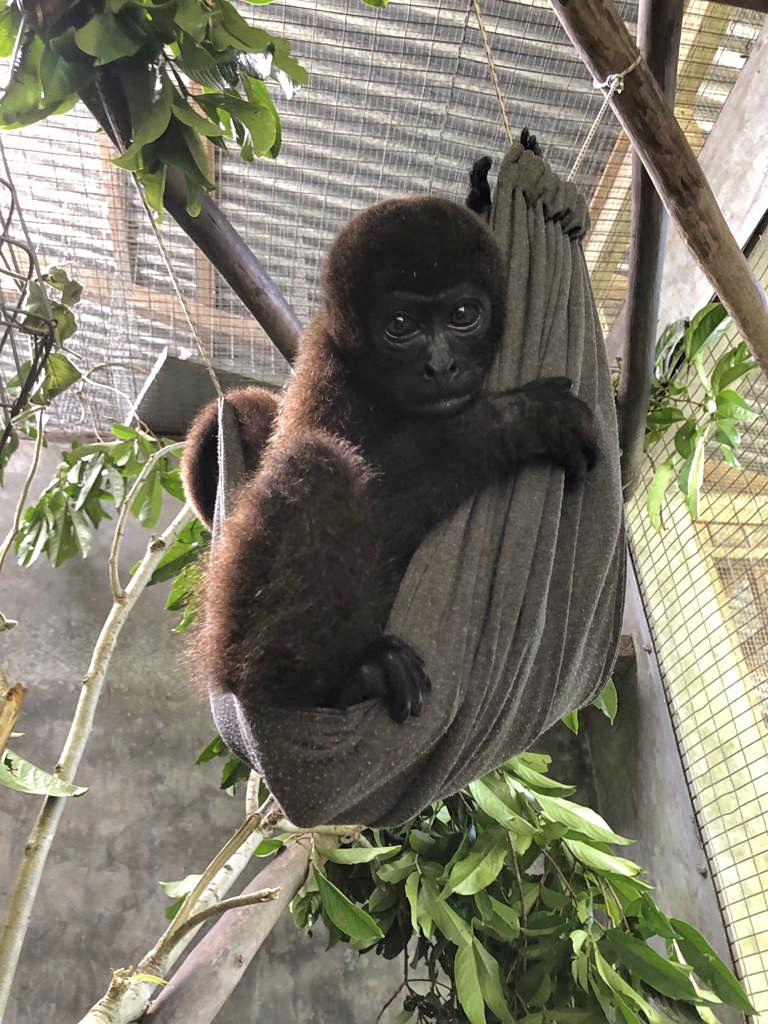
Kaluha (female woolly monkey) was brought into the clinic to remove two botflies from her arm. As she’s also struggling with the well-known parasite P. Elegans, we decided to keep her a bit longer for some extra care and treatment. She sure loved the attention at first, but she’s happier to be back with the rest of the bunch!
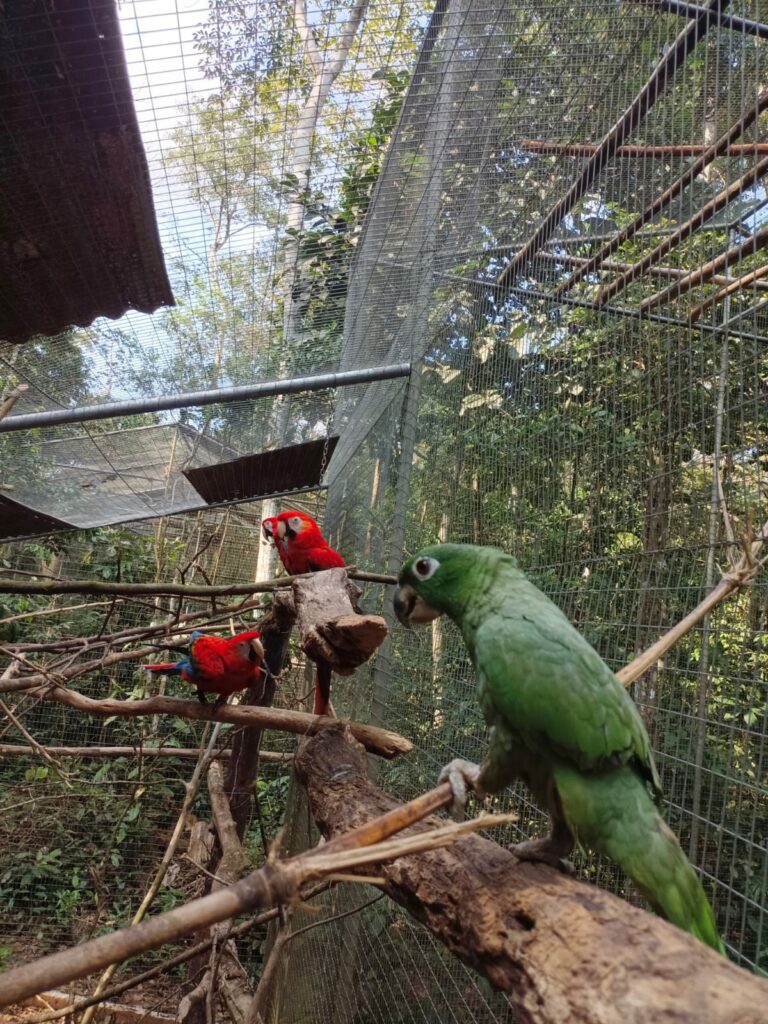
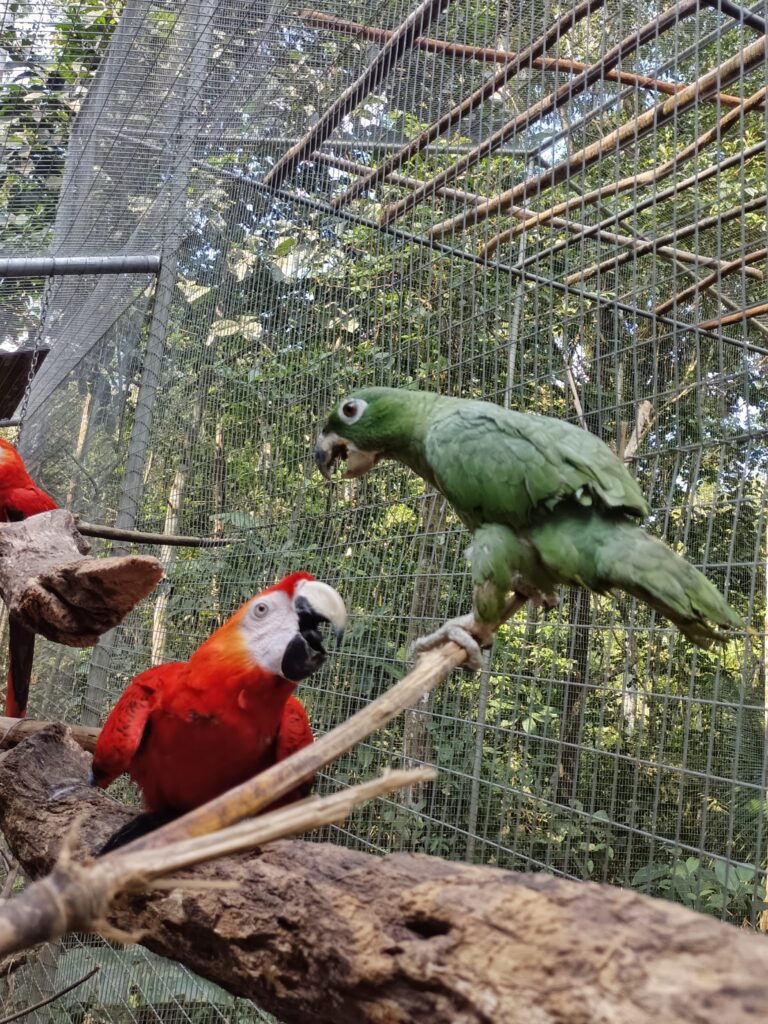
Don Pancho, the new mealy parrot in the clinic, was ready for a move. Though two of his toes are missing he is capable, confident, and already adapting very well in the company of the other birds, in the front cage of the “Elmo” aviary.
 Quarantine
Quarantine
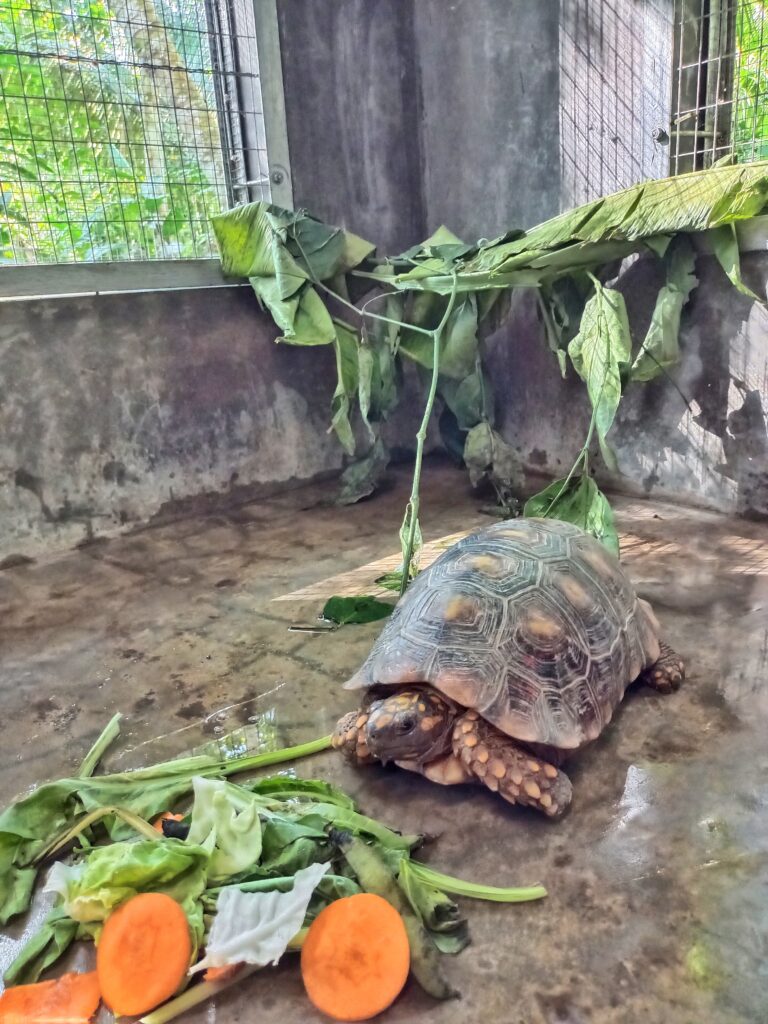
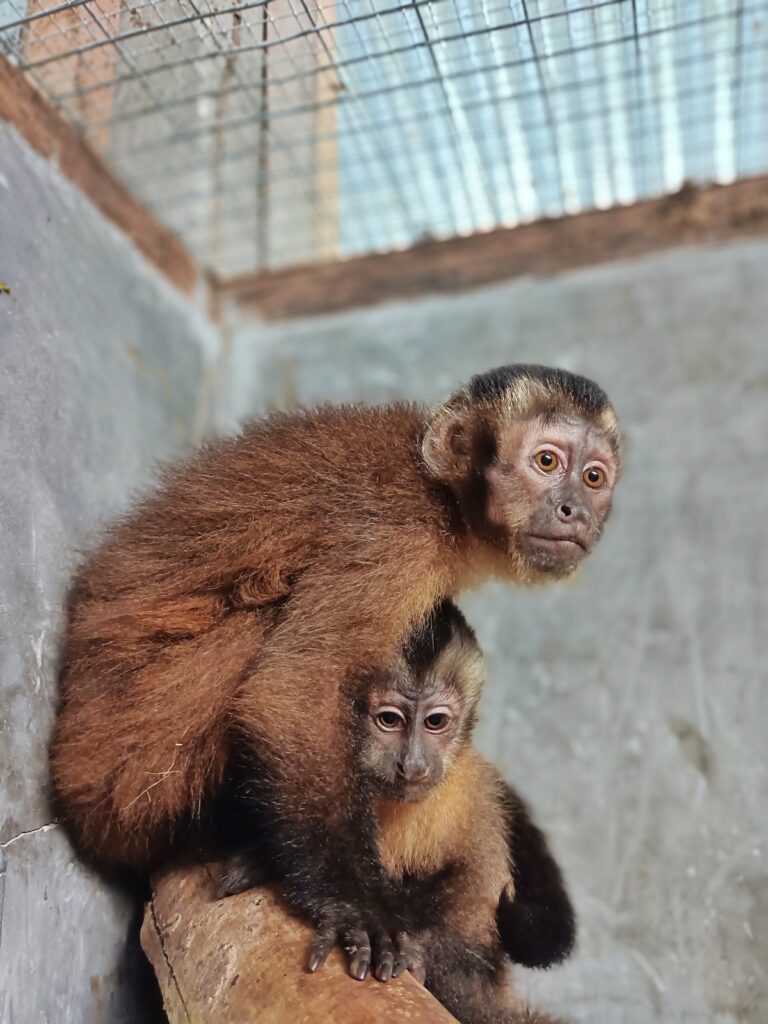
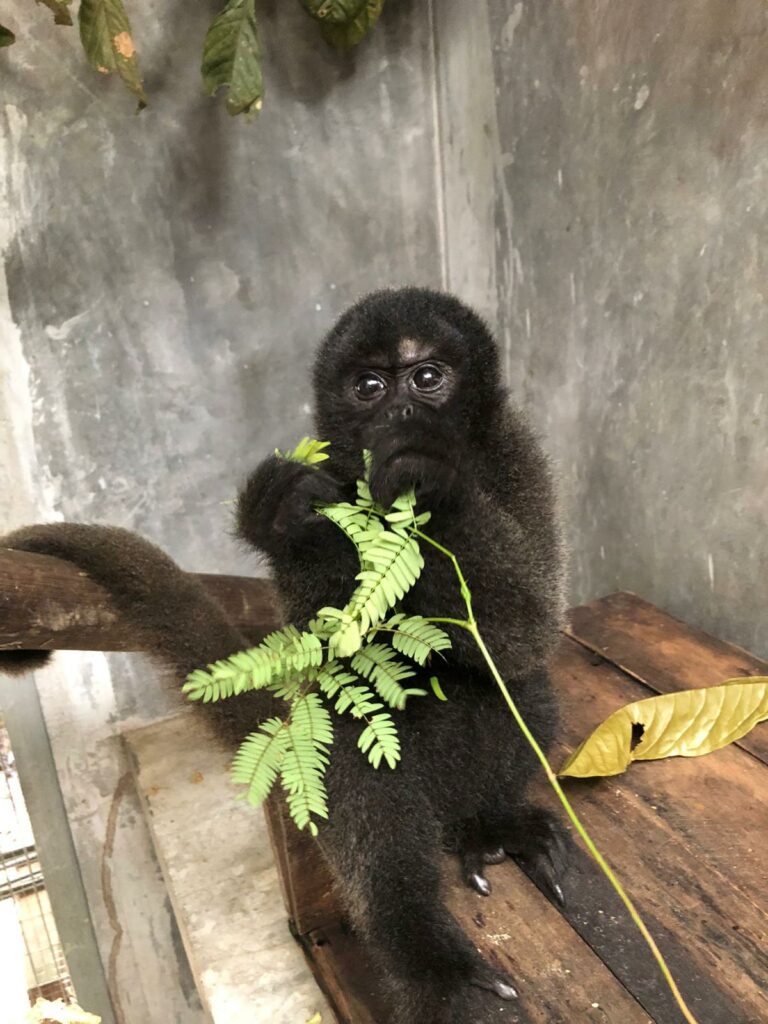
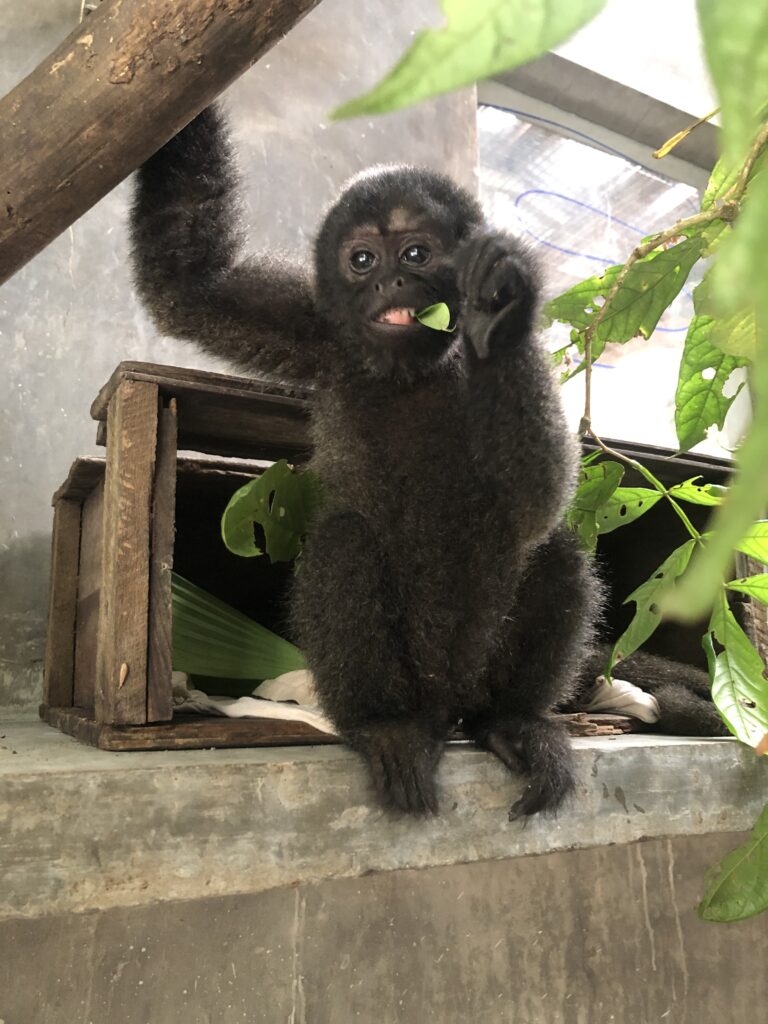
The local ‘Ministry of Fauna and Flora’ in Pucallpa arrived with two female capuchins (Talia and Diya) a yellow-footed tortoise, named Luma, and Mushu a young male woolly monkey.
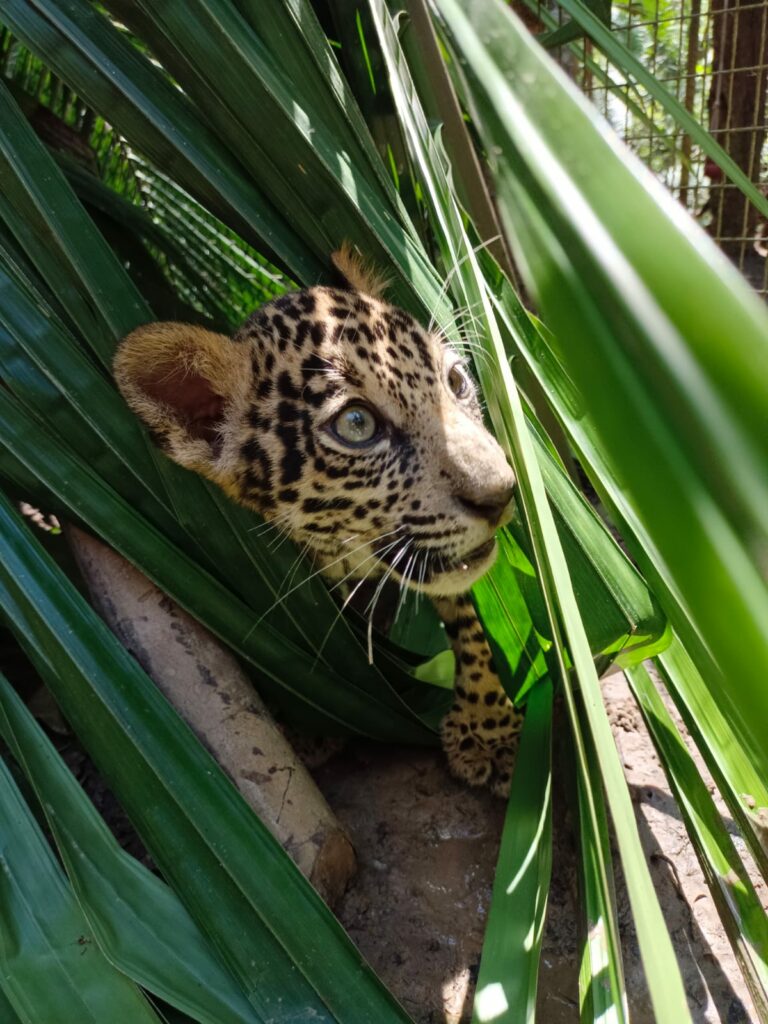
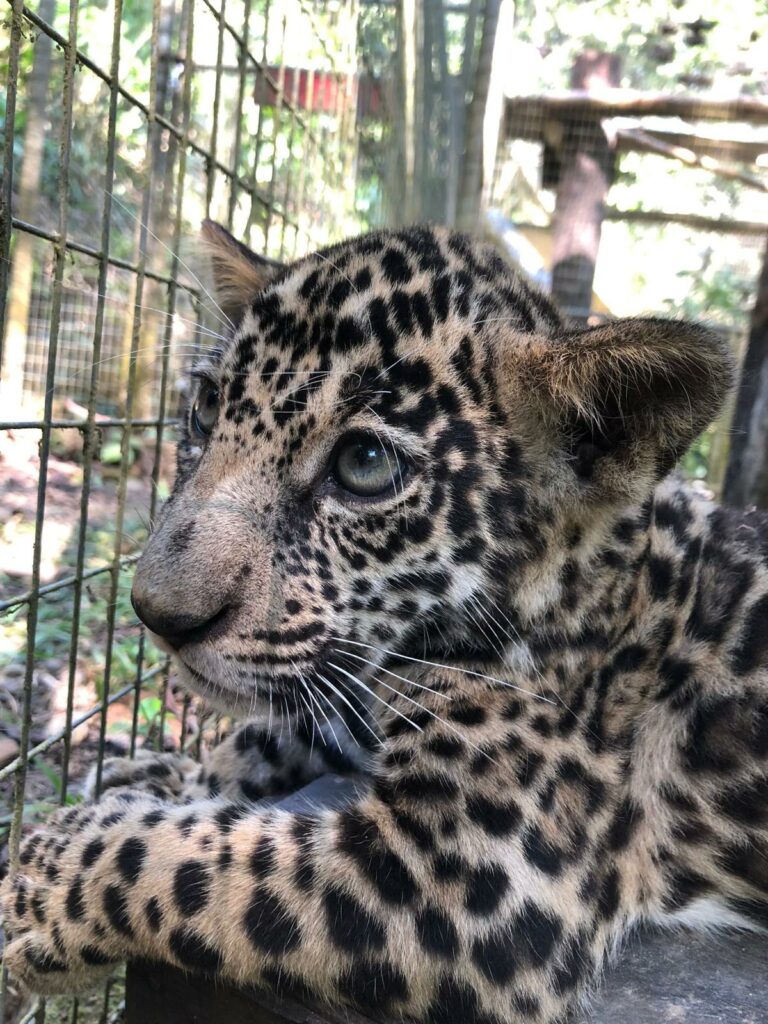
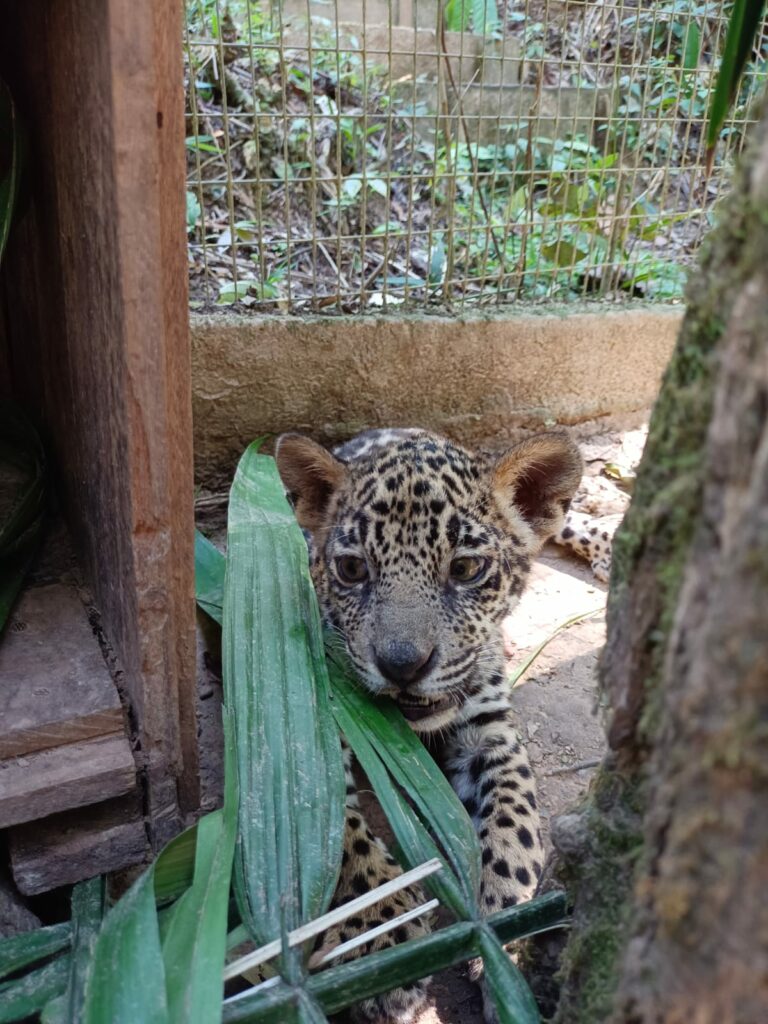
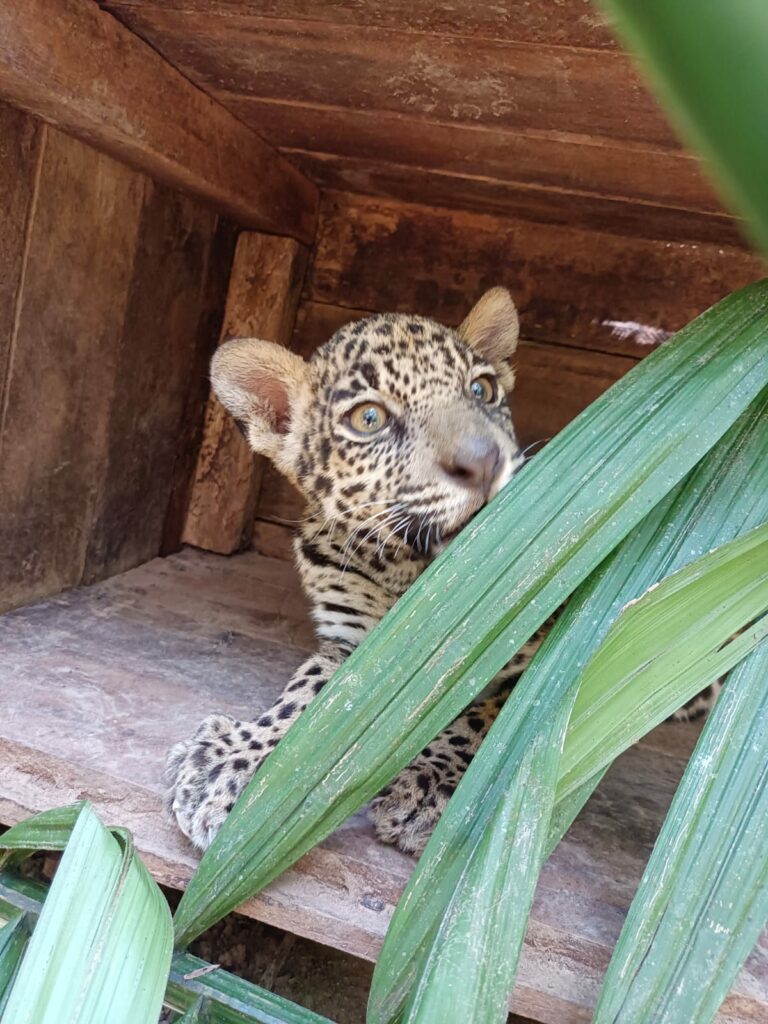
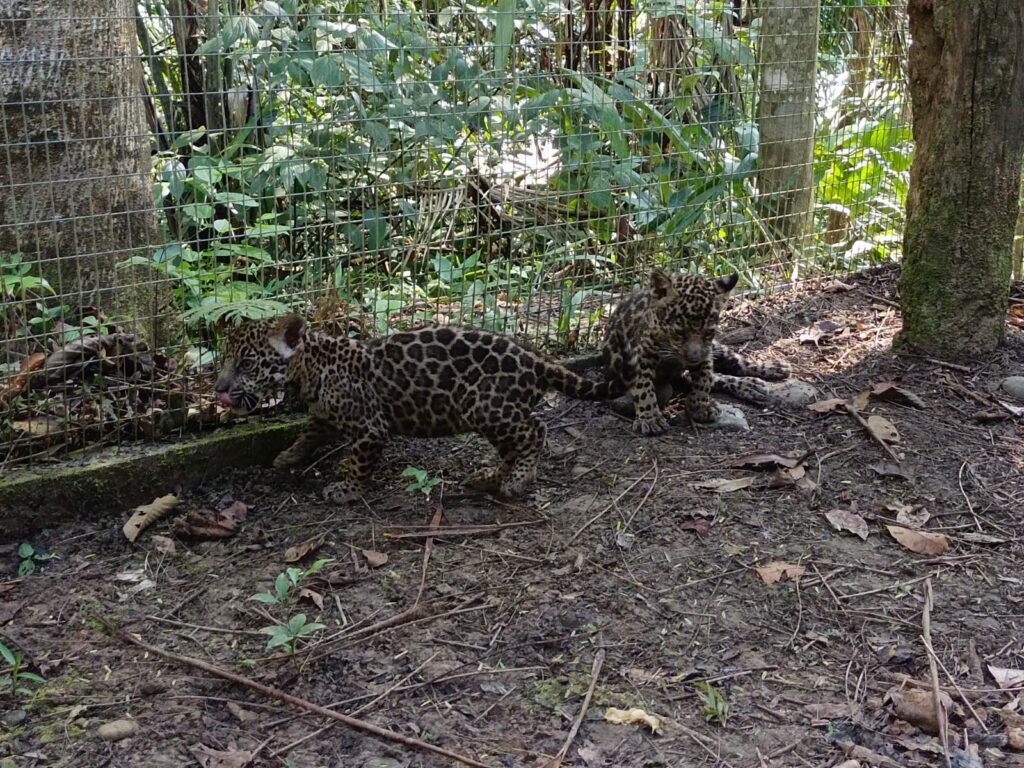
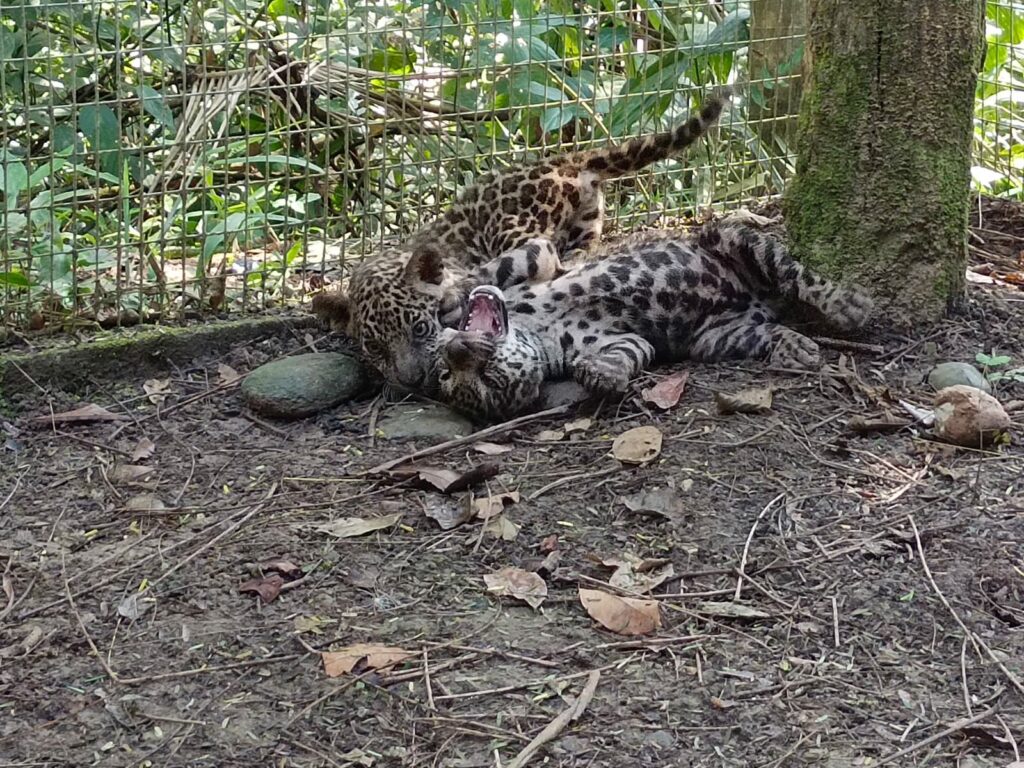
And then a first for EV – two female baby jaguars! Yet to be named… Keep an eye out on our socials for updates. The two youngsters had a very brief stay at the “RAREC-Center” in Iquitos (https://rarec.org/), and as they were running out of space, we were asked to help. The Representatives of the Ministry of Fauna and Flora Iquitos (GERFOR) and Panthera ( https://panthera.org/) helped arrange their safe transport together with the local authorities of Pucallpa (GERFFS). Although we don’t have an adequate enclosure or the ability to store enough meat for big cats, we made an exception in this case. Being this young we will look after them for a short time, while the authorities find a sustainable long-term placement.
 Volunteer life and other
Volunteer life and other
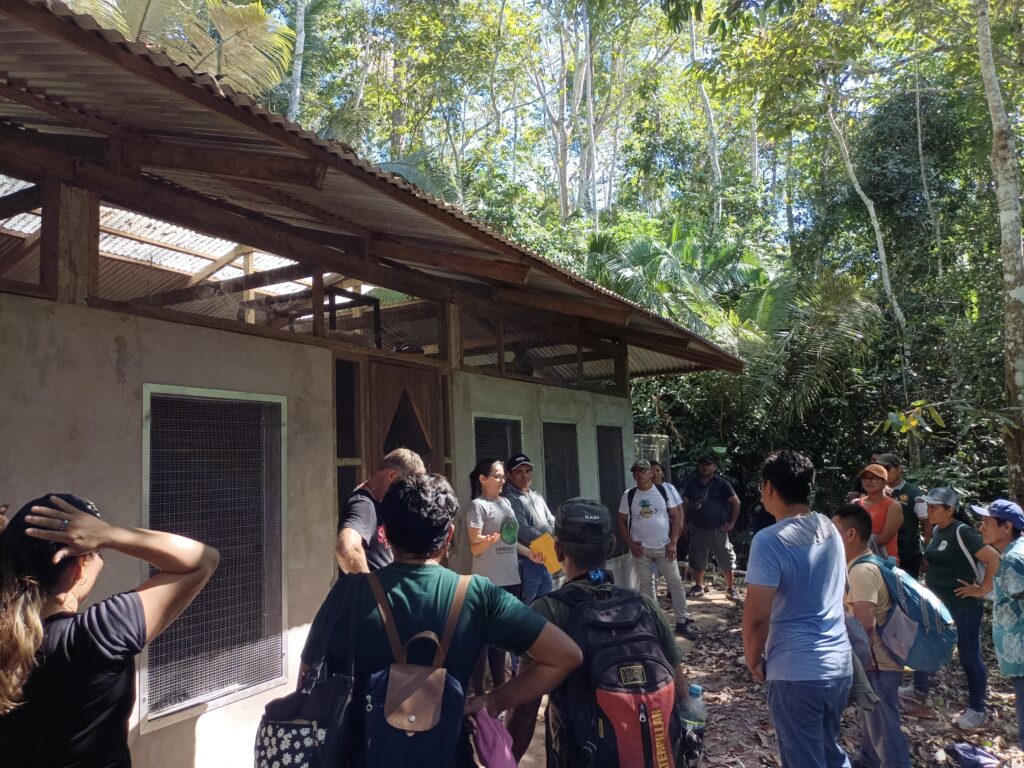
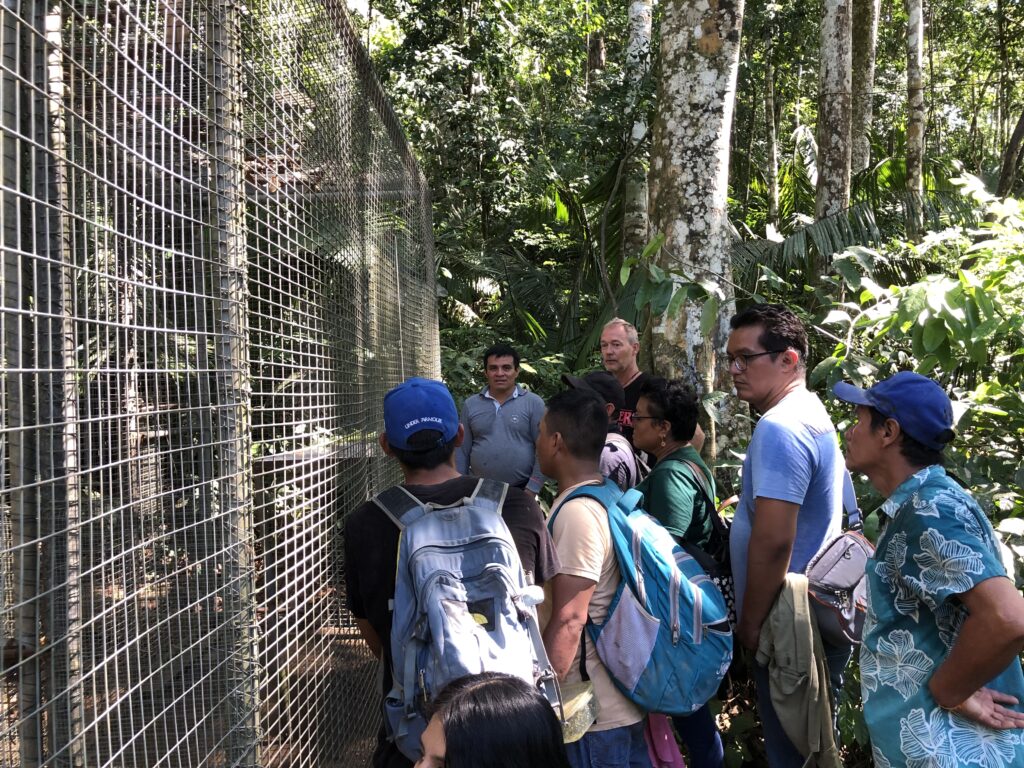
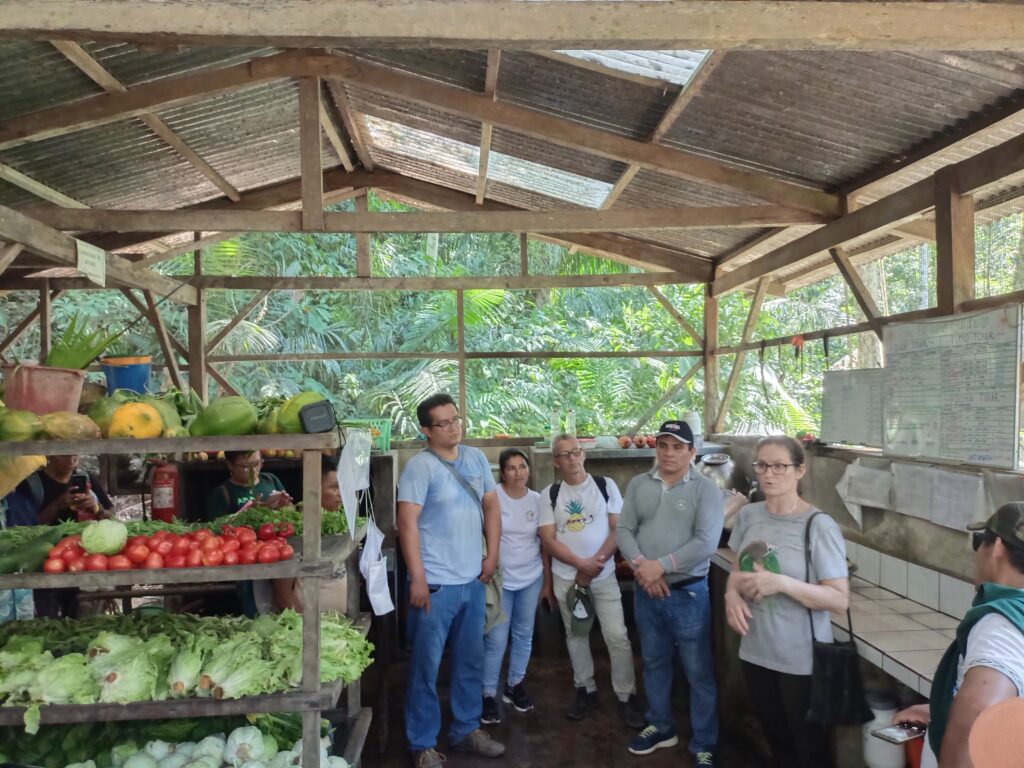
We had visitors… but not the furry kind. All the staff from Pucallpa Zoo came by for a tour. Olivia and Douwe showed them around, sharing their insights about animal diets, enclosure building, enrichments, and handling a variety of species. Sharing knowledge and experiences is always great fun and their visit was a total treat.
Douwe not only spends his days building new enclosures and taking care of the animals… These days, he is often found at the other side of the river where another passion – figuratively and literally speaking – grows bigger each day. Here, our plantation ‘Don Jorge’ is located. Without animals eating everything that looks yummy, we can grow a variety of local fruits and veggies, depending on the season.
Douwe and Marlon are spending the next month in the Netherlands, the centre is in Olivia and the teams’ capable hands. Geyler is stepping up to take charge of construction and maintenance.
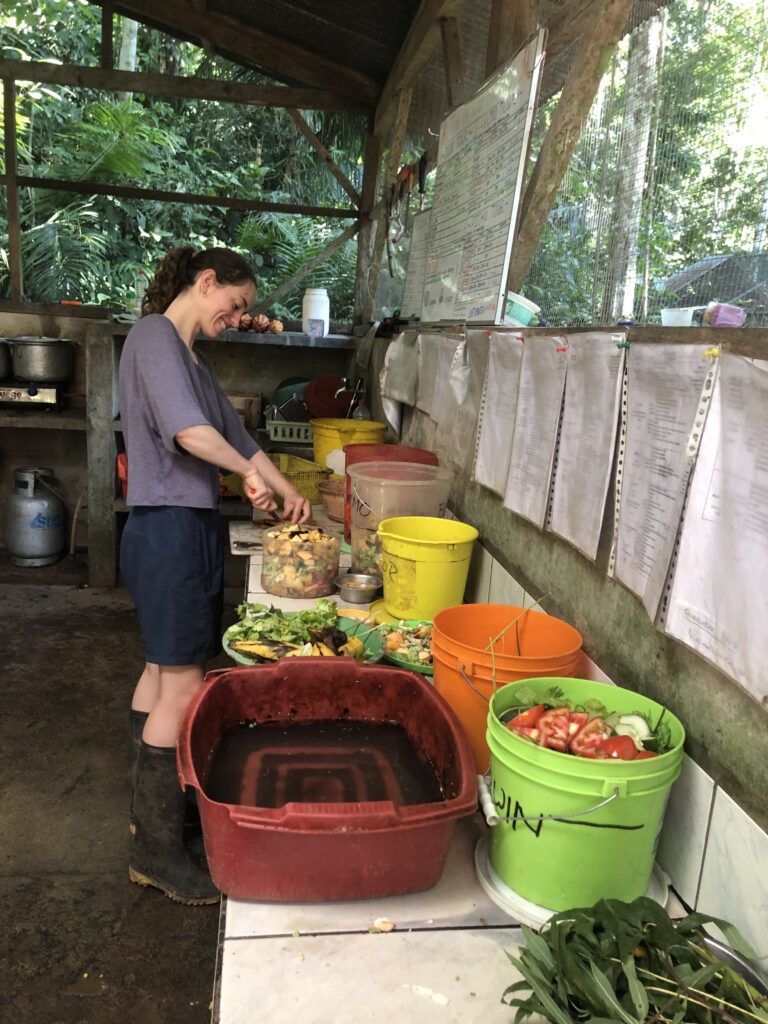

As a lot of volunteers’ stays are soon coming to an end, the next months will get a bit tough. Fewer hands mean harder work for the group during these quiet months. Unless you’re tired of city life and want to work hard with immediate results? Challenge yourself both mentally and physically? Say things like ‘Oh no it’s not raining, it’s just the monkeys on the roof’? Then join us, or tell a friend, stranger, lover, or parent to come help us out. We need all the hands we can get. No pressure though…
!Hasta proxima amigos!

